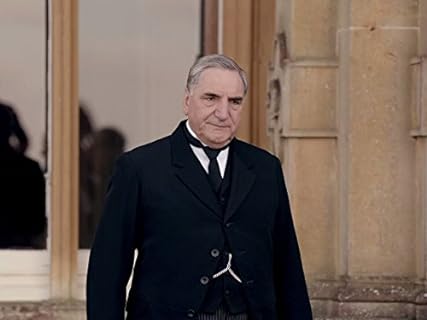電影訊息
唐頓莊園:第六季--Downton Abbey :Season 6
編劇: 朱利安‧費羅斯
演員: 休邦尼維爾 Laura Carmichael 吉姆卡特 Raquel Cassidy 布蘭登柯伊
唐顿庄园第六季
導演: Minkie Spiro編劇: 朱利安‧費羅斯
演員: 休邦尼維爾 Laura Carmichael 吉姆卡特 Raquel Cassidy 布蘭登柯伊
電影評論更多影評

2016-01-20 06:13:07
The Vicissitude of Downton Abbey
Downton Abbey's final episode ended all in a sudden, leaving me cannot but retrospect the whole six seasons of the show watched in the past four years. I shall again murmur the old adages like "how time flies" or "time and tide wait for no man", cliche as it may seem, man's affection toward a TV drama can rarely boil down to those simplest and same old same proverbs in that few of them can survive the baptism of the time or the variation of our interest . The Christmas specials of Downton always forebode a happy ending of this season except for the season 3 in 2012 when Cousin Matthew died in a car crash, the new arrival of the family, Master George, nevertheless, had in a way tamed the grief. And this time, in snowflakes spinning around and Auld Lang Syne echoed in cheerful melody, the end of the show is undeniably satisfactory, though in such a haste. The wedding of Edith, the baby of the Bates, the engagement of Cousin Isobel and Dickie, and, to top it all, the reconciliation between 瑪莉 and Edith lastly erase all our misgiving, like how a fairy story ends, they " shall live happily ever after " and get free from ado and annoyance of the world despite the upcoming Second World War after two decades in 1945 and the Great Depression three years later, notwithstanding, it's another utterly different story.
After all these year, one can barely clearly define what the story of Downton Abbey actually is since the theme of the show had been keeping changing. At the very beginning, you may think it was the conventional sort of soup opera, a poor lad got a sudden windfall from his distant relative, an Earl. And the elderly daughter of the aristocratic family resented but finally fell in love with the lad. Except for the life and manners of the aristocracy presented by the show, it's no more than an archaic love story like Cinderella. The First World War, however, made everything different from the way it used to be. What attracts our attention is how the abbey and its dwellers peopled here changed and adapted to the trajectory of the time. The story of 瑪莉 and Matthew, though appealing, is but an ordinary story, outshining other characters who did transform the show into a magnificent one. Women rights Sybil had been struggling for her lifetime, the decline of Downton Abbey, the transformation of the hospital where Dr. Clarkson served, in the era of change in the early twentieth century, numerous tales happening upstairs and downstairs are the miniatures of their age.
Change is no doubt the theme and key word of the show, 茱莉亞n Fellowes has intended from the very beginning to mirror the uncertain yet special epoch through the vicissitude of the abbey. Everything from the bob cut of 瑪莉 and Daisy, Sybil's trousers, and the new jobs of Molesley to the new way of running the estate, job reshuffle downstairs, electric lamp, telephone, hairdryer, and all the amazing new stuff from the second industrial revolution. How twentieth-century they are! In the era pushed ahead by the force of changes, the antiquated abbey, in the start, resisted adapting to all of them, walking in the old steps and secluding itself, just like the old Carson (no offense here), but who can avoid the inevitable transition of time? Even Lady Violet yielded to it after Lady Levinson from America, the so-called modern new world, told her that her world "is coming nearer and nearer" while Violet's "is slipping further and further away ". The colors of the world are changing day by day, independent from man's will, even an aristocrat you should be.
Downton survived eventually, with all the estate in good order and all the characters finding their belongings. Tragedy makes great works, and so it does, but not with Downton. Six years are long enough for bond to grow between we audiences and characters, we shall weep for the demise of Sybil, curse the playwright when Matthew died, dance a jig for those new births, and get inspired by Daisy's aspiration for education. The future is uncertain, not only for characters residing in Downton Abbey, for whom the story has come to the end of a stage, but also for everyone sitting in front of the TV awaiting them every Sunday night, for whom there is a long time ahead.
The future is replete with uncertainties, yours and mine. We might relish no greater joy than the Crawley family yet endure harder miseries, but as Violet said, we shall drink to the future, whatever it may bring, and as Isobel responded, we're going forward to the future, not back into the past. Six years make an appreciable part of our life, we have laughed and cried with everyone upstairs and downstairs, those tiny tales of them formed their life as well as ours, now that they've faded out of our life, and we, after farewell to them, shall go ahead and move forward. And the more adaptable we are, according to Cora, the more chances we have of getting through, isn』t it? 舉報
評論

